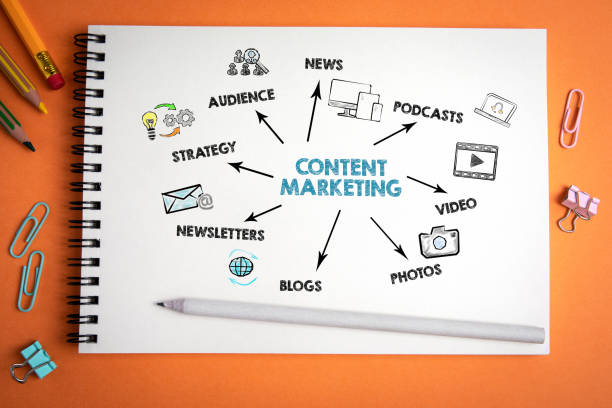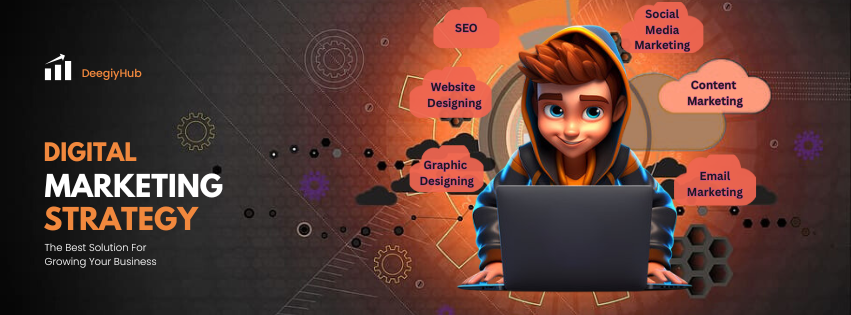
Introduction
In today’s digital-first world, traditional advertising is losing its edge. People are tuning out salesy pitches and tuning into content that educates, entertains, or solves real problems. That’s where content marketing comes in.
Whether you’re a startup, small business, or established brand, content marketing can drive meaningful engagement, build trust, and turn audiences into loyal customers. In this blog, we’ll explore what content marketing is, why it’s more important than ever in 2025, and how to build a strategy that delivers results.
Content marketing is a strategic approach that focuses on creating and distributing valuable, relevant, and consistent content to attract and engage a target audience, ultimately aiming to drive profitable customer action. It’s about building relationships and establishing expertise by providing useful information, solving problems, and answering questions. This approach can lead to increased brand awareness, lead generation, and customer retention.
What is Content Marketing?
Content marketing is the strategic creation and distribution of valuable, relevant, and consistent content to attract and retain a clearly defined audience—and ultimately, to drive profitable customer action.
Unlike traditional advertising, which interrupts, content marketing delivers value first and builds relationships over time.
a type of marketing that involves the creation and sharing of online material (such as videos, blogs, and social media posts) that does not explicitly promote a brand but is intended to stimulate interest in its products or services.
Key Aspects of Content Marketing
Creating valuable content:
This includes various formats like blog posts, videos, podcasts, infographics, ebooks, and social media posts.
Targeting a specific audience:
The content should be tailored to the interests and needs of the intended audience
Distributing content across various channels:
This includes websites, social media platforms, email marketing, and other relevant channels.
Building relationships:
Content marketing helps establish trust and credibility with potential and existing customers.
Driving profitable action:
The ultimate goal is to influence the target audience to take desired actions, such as making a purchase or signing up for a service.
Benefits of Content Marketing,
Increased brand awareness: Regularly sharing valuable content can help a brand become more visible and recognized.
Lead generation: High-quality content can attract potential customers who are interested in the brand’s offerings.
Customer engagement: Engaging content keeps customers interested and involved with the brand.
Improved SEO: Well-optimized content can improve a website’s search engine ranking.
Cost-effective marketing: Content marketing can be a more cost-effective approach than traditional advertising.

Types of Content,
- Blog posts: Provide valuable information and insights.
- Videos: Offer engaging visual content.
- Podcasts: Share audio content and build relationships with listeners.
- Infographics: Present data and information in a visually appealing way.
- Ebooks: Provide in-depth knowledge on a specific topic.
- Social media posts: Share updates and engage with followers.
- Webinars: Offer educational content and build relationships with attendees.

Why Content Marketing Still Matters,
Consumers trust content more than ads. People now research products, compare reviews, and look for educational resources before making decisions.
Search engines reward content. Google favors helpful, high-quality content that aligns with user intent.
It supports every stage of the funnel. Content can attract new visitors, nurture leads, and convert buyers.
Content builds brand authority. Sharing expert insights or thought leadership content positions your brand as an industry leader.
How to Build a Winning Content Marketing Strategy,
1. Know Your Audience
Start by creating detailed buyer personas. Understand their goals, pain points, and preferred content formats. Use tools like Google Analytics, social listening, or customer surveys.
2. Map Content to the Buyer’s Journey
Create content for every stage:
- Awareness: Blog posts, social media, videos
- Consideration: Case studies, how-to guides, email sequences
- Decision: Testimonials, product comparisons, demos
3. Prioritize Quality Over Quantity
In 2025, it’s not about churning out tons of content—it’s about creating valuable, engaging, and well-researched pieces. One great post can outperform ten mediocre ones.
4. Leverage AI and Data-Driven Insights
Use AI tools to:
- Generate ideas and outlines (like with ChatGPT)
- Analyze content gaps
- Optimize for SEO
- Repurpose content across channels
5. Distribute Smartly
Creating content is just half the battle. Promote your content on:
- Email newsletters
- LinkedIn, Twitter/X, Instagram, TikTok
- Guest posts or partnerships
- Paid promotions (especially to retarget warm leads)

6. Measure What Matters
Use KPIs like:
- Website traffic
- Engagement (time on page, bounce rate)
- Lead conversions
- Email open and click-through rates
- ROI per content type
Tools like Google Analytics, HubSpot, or SEMrush can help you measure and optimize performance.
Emerging Trends in Content Marketing,
- Short-form video content dominates platforms like TikTok, Instagram Reels, and YouTube Shorts.
- Voice search optimization is growing with the rise of smart assistants.
- Interactive content (quizzes, polls, calculators) increases engagement and dwell time.
- User-generated content (UGC) helps build trust and authenticity.
- Content personalization driven by AI creates a tailored user experience.
Common Mistakes to Avoid,
- Publishing without a strategy or clear goals.
- Ignoring SEO or keyword research.
- Focusing too much on self-promotion.
- Failing to repurpose high-performing content.
- Not updating old content (evergreen pieces need refreshing!).
Conclusion
Content marketing isn’t just a trend—it’s a proven, sustainable way to grow your brand, connect with your audience, and drive real business results. In 2025, the brands that win are the ones that tell better stories, deliver genuine value, and stay consistent.
Start with your audience, be authentic, and never stop testing and optimizing. The right content, delivered at the right time, can turn casual visitors into lifelong customers.


